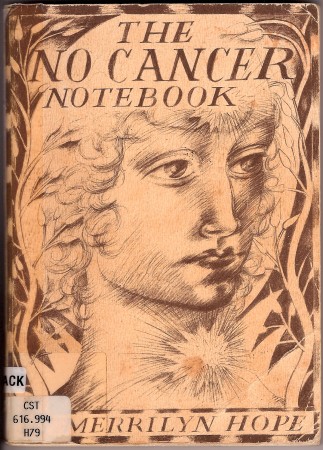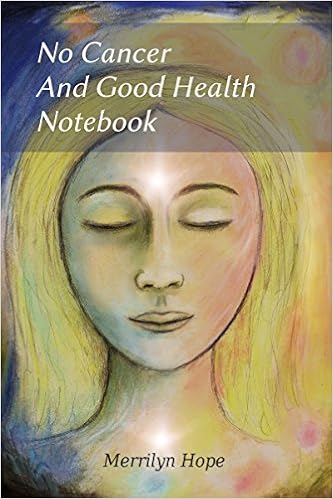Vitamin B complex, Biotin,Vitamin C, Zinc and Iodine are the best vitamins and minerals to encourage hair growth. Of course, you also need a nutritious diet with plenty of alkaline foods such as green vegetables, and adequate protein. If you are on a budget, then the first things to consider buying would be things like eggs, fish, sesame seeds, sunflower seeds, greens and fruits, and IODINE . However, there are many more Vitamins and Minerals which are necessary for good health and for the growing of new hair. There are also a variety of conditions which can lead to hair loss, and so we will look at those things in this article too.
 Photo taken by Merrilyn 25th December 2012, Dunedin.
Photo taken by Merrilyn 25th December 2012, Dunedin.
In this article we will discuss the possible causes of hair loss, the range of foods which may be helpful as sources of essential elements, and also the additional best vitamins for hair growth.
There are several main issues to consider in treating hair loss.
If you have a physical condition such as diabetes, or a thyroid disorder, then you might suffer hair loss. These conditions, of course, must be treated by a doctor, and any vitamin therapy you might consider should be discussed with your doctor if you have a medical problem of any kind, especially if you are taking medication.
If hair loss is a hereditary condition, then growing new hair might be difficult to achieve, especally for men; however, it is certainly worth a shot to give your diet an overhaul and to use vitamin and mineral supplements over a period of 4-6 months, even if hair loss is hereditary: You might be able to stave off the condition of hair loss with massage, supplements, a few drops of iodine applied to the scalp several times a week, and optimum nutrition.
Many women suffer hair loss after childbirth, or because of deficiencies which arise because of heavy menstruation. This type of hair loss responds well to good nutrition, rest, and added supplements.
A traumatic event such as the loss of a loved one, or major surgery,or chemotherapy can cause hair to fall rapidly and effect a general decline in health. The hair loss which can result from trauma also responds well to good nutrition, and supplements, when combined with a good amount of rest.
However,exposure to excessive amounts of radiation can mean a slower recovery to health, which affects hair growth. Even radiation from power lines, transformers, and close proximity to electrical wires and appliances in the living, working, or sleeping environment can cause hair loss. If this is the main reason your hair is falling out, then you need to correct the environmental causes: Vitamins and minerals and diet will help, but the problem cannot be cured if your environment is toxic in any way. A poison-free, radiation-free environment is a prerequisite for any healing, including encouraging hair growth.
Poor nutrition,which includes a diet deficient in protein, green vegetables and fruits, or a diet which is generally lacking in the essential vitamins and minerals necessary for good health, can cause hair loss. Not enough protein, oils and fats in the diet causes a slowing of hair growth, and a dry scalp which causes hair to fall.
Sudden crash diets can cause hair loss. Studies of people who suddenly reduced their calorie intake to 800 calories per day, or less, showed that these crash dieters experienced dramatic hair loss.
Some medications cause hair loss. Warfarin and heparin, both of which are blood thinners, cause hair loss in 50% of the people who take them. The contraceptive pill depletes vitamin and mineral content in the body which can lead to hair loss. Some other drugs which are known to interfere with vitamin absorption and which produce hair loss are: amphetamines, propranolol which is used as a blood pressure medecine, and oral gold which is prescribed for arthritis.
Using hair dyes cause hair loss. Many dyes contain p-phenylenediamin, which not only thins your hair out, but can cause heart problems and cancer.
Generally, vitamins and minerals which help sugar metabolism, thyroid function, and kidney function have a beneficial effect on the hair. Symptoms of these conditions or weaknesses are often displayed by thin, falling hair. All those trace elements which help to regulate blood sugar levels should be included in the list of “Best Vitamins For Hair Growth”. Hypoglycemia, or rocketing blood sugar level, is a chief cause in most people’s condition of hair loss. If good nutritional food is eaten, sugar is minimized in the diet, and the correct supplements given to help correct hypoglycemia, then you will find the hair begins to grow again.
Vitamin and mineral supplements really can make a difference to the condition of your hair and, in many cases, encourage new growth. You really need the whole range of vitamins and minerals in your diet for maximum health benefits from the food you eat: Vitamins and minerals are often activated, or assisted in their efficacy, by another vitamin or mineral. Some of the best vitamins for hair growth, assuming your diet includes a range of vegetables, fruits, proteins and whole grains, are:
VITAMIN A, or RETINOL, helps to prevent a dry scalp and dandruff. It is conducive towards general good health and for growing healthy hair. While deficiencies of Vitamin A/Retinol can lead to hair loss in combination with other deficiencies, an excess of this Vitamin can also result in excessive hair loss. Vitamin A is thought to be commonly deficient in about 33% of American and Australian/New Zealand children, and also deficient in about 20% of adults in these countries. Carrots, pumpkin, apricots, rockmelon, mango, in fact any yellow/orange fruit or vegetable will provide you with enough Vitamin A if some of these foods are eaten on a daily basis.
Too little Vitamin A will deplete your body of some of your Vitamin C intake.
VITAMIN C, which is a good, general all-rounder, helps all functions of the body, including the absorption of some vitamins and minerals,and the regrowth of bones, teeth and hair and nails. It also is effective in the counteracting of toxins and in the elimination of waste products from the body. Ester C, or Calcium Ascorbate, or some other non-acidic form of Vitamin C is the best one to go for: the non-acidic type is gentle on the stomach.
VITAMIN C when taken with IRON helps to cure anemia, which can be a cause of hair loss. Prevention of anemia is assisted by adequate intakes of zinc.
Without adequate iron, the body inhibits hair growth as a self-preservation measure, and will only allow hair to grow again when the iron is restored to the body. Anemia can arise because of heavy menstrual periods or after childbirth. Iron is needed to cure anemia, but it is important that enough Vitamin C is taken in order for the iron to be assimilated into the body. 50 milligrams of iron taken with 100 milligrams of Vitamin C is a good remedial measure: you would take this until your iron levels are normal, which should be only a matter of weeks if your diet is nutritionally sound: Check with your doctor for advice on when to start and when to stop.
NOTE: Lack of zinc can contribute to an anemic condition. If your zinc intake is adequate, and your diet is good with a variety of foods eaten which cover the range of vitamins and minerals, then you should not develop anemia. Taking iron supplements can make you constipated. Talk to your naturopath or doctor about what is best for you.
IMPORTANT: It is best when taking IRON supplements that you get medical advice. Some people can build up an excess of iron in the blood. If you are not anaemic, then do not take an iron supplement: It is a safer practice to follow an iron-rich diet without taking an iron supplement, as this way you will not exceed a healthy iron level.
Foods which are high in iron are egg yolk, red meats, green vegetables such as kale, broccoli, spinach and silver beet should be included in the daily diet for people who have iron deficiency because of childbirth or menstruation. If you take a large glass of orange juice ,which is high in Vitamin C, you will maximize the iron intake from these vegetables.
VITAMIN B COMPLEX is essential in treating hair loss. This vitamin helps to alleviate stress and is functional in processing your carbohydrates, both of which help to keep your hair on. The B complex components which are helpful in growing healthy hair may be broken down into the following specifics, however DO NOT OVERDO any one of the Vitamin B complex over a long period. It is good to take a B complex tablet with any extra Vitamin B component so that you do not get an imbalance of any one of the complex. Best to get your health practitioner’s advice on what combinations to take.
VITAMIN B1, or THIAMINE: This is very helpful in keeping your brain and nerves healthy so that you can allow those new hair follicles to grow. Deficiencies can cause depression and constipation. It helps you manage stress and imparts a general feeling of well-being.
Some good sources of Thiamine are milk, orange juice, peanuts, wholemeal flour, green peas, sweet corn and wheat germ. Brewer’s yeast is especially high.
VITAMIN B2, or RIBOFLAVIN: This is important as a vehicle to take blood sugar to the muscles, brain, and eyes. Cataracts can form with a deficiency of Riboflavin, and serious hair loss can result when levels remain low. Milk is a great source of Riboflavin, so if you do not have a problem with the digestion of milk, then this is an affordable option to increase your Riboflavin. Baking soda, and baking powder can destroy Riboflavin, so baked products using these ingredients may not give you your requirement of this vitamin. Sunlight also affects Riboflavin adversely.
Riboflavin is thought to be one of the most deficient B Vitamin in people’s diets. It is added to many foods in America to help prevent deficiencies.If you are taking the contraceptive pill, then this vitamin could be deficient, along with B6, B12 and Folic Acid.
Some good sources of Riboflavin are: milk, eggs, avocado, brussels sprouts, broccoli and mushrooms.
FOLIC ACID is another B Vitamin which is necessary for healthy hair. Inadequate folic acid can cause extreme anxiety, poor mental health, and premature greying of the hair: the greying of the hair can, in many cases, be restored with treatment of this B component, and mental/emotional factors relieved. Folic acid also helps prevent anaemia, which can be a cause of hair loss. Folic acid is necessary for healthy blood, hair, eyes, and a healthy brain.
Folic acid is found in orange juice, eggs, milk, brewer’s yeast, oatmeal porridge, wholemeal flour, peanuts, spinach, broccoli, brussels sprouts, pumpkin, silver beet, sweet corn, cauliflower, peas and tomatoes.
INOSITOL is another important B vitamin which helps hair grow. Excessive hair loss can result with insufficient inositol in the diet. It is important because it helps with the digestion of foods, and helps to produce lecithin in the body. It is important not just for the hair, but for the health of eyes, bone marrow, intestines, arteries, liver, kidneys and heart.
Inositol is found in orange juice, milk, peanuts, brown rice, wholemeal flour, beef, baked beans, broccoli, brussels sprouts, cabbage, sweet corn, raw tomatoes, lettuce, liver and wheat germ.
PANTOTHENIC ACID is another important B vitamin. It aids digestion, helps protect against radiation and is a good anti-stress vitamin, thus it is helpful for hair growth. Baking soda can destroy this vitamin. It is manufactured in the body, but is also found in eggs, milk, avocado, peanuts, broccoli, cauliflower, mushrooms and brown rice.
BIOTIN, or Vitamin H, is a recommended vitamin for hair growth. This encourages the hair to grow, it thickens and strengthens the hair strands, and reduces shedding of the hair. Biotin is manufactured in the intestines, so the production of biotin can be halted if you have taken antibiotics, or are on medication which inhibits the biotin manufacture. Some biotin is drawn from the foods we eat.
Eggs, peanuts, liver and brewer’s yeast are good sources of biotin.
IODINE is especially important for healthy hair. It is best to simply apply this to the scalp several times a week, just a few drops at each application, and massage into the scalp. Iodine is absorbed readily through the pores of the skin and scalp, so there is no need to take this orally.
Iodine nourishes the thyroid gland. It helps in the maintaining of energy levels and regulates cholesterol in the blood. It aids heart function and blood circulation. Applied to the scalp, it is absorbed easily into the tissues where hair is formed, helping it to grow.
MANGANESE is important in helping to regulate blood sugar levels, so this makes it a necessary component in your diet if you are treating a condition of hair loss. It is found in milk, banana, orange juice, peanuts, baked beans, silverbeet and tomatoes, dolomite powder, molasses and treacle.Fish and avocado are also good sources.
ZINC is especially important in building a strong body, improving immune function and in increasing hair growth. Zinc helps prevent anaemia, which can cause hair loss. It helps the conversion of carbohydrates to energy in the body and is important in keeping the blood sugar stable. If the blood sugar begins to fluctuate, then hyperglycaemia can result, which leads to thinning hair.
See also http://merrilynhope.com/best-vitamins-for-hair-growth/
Merrilyn’s new book is out on Amazon: See The No Cancer And Good Health Notebook





